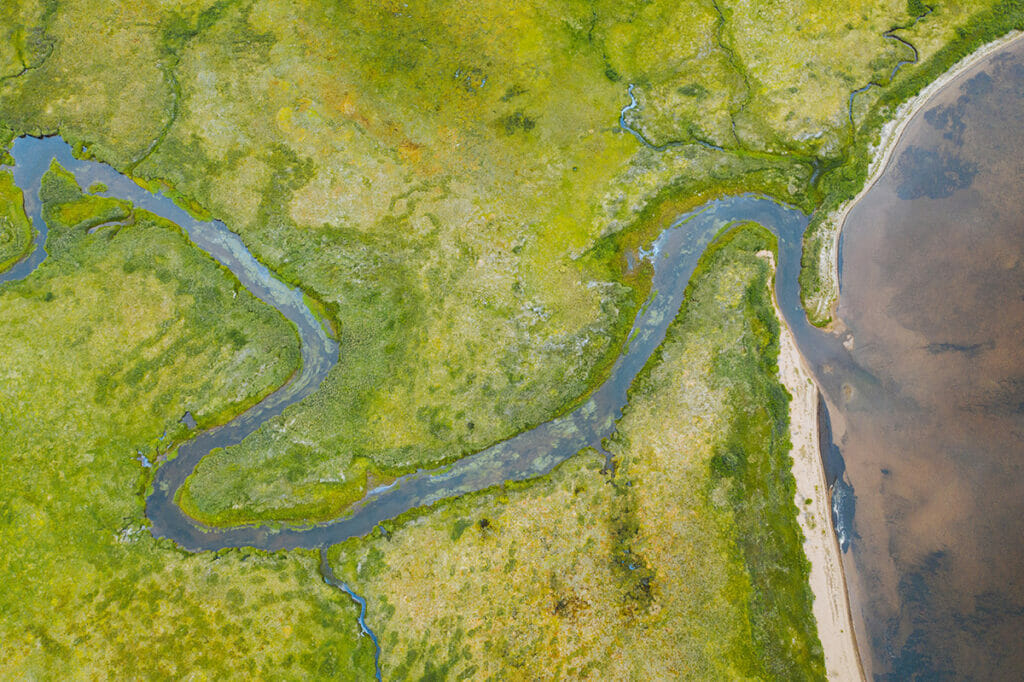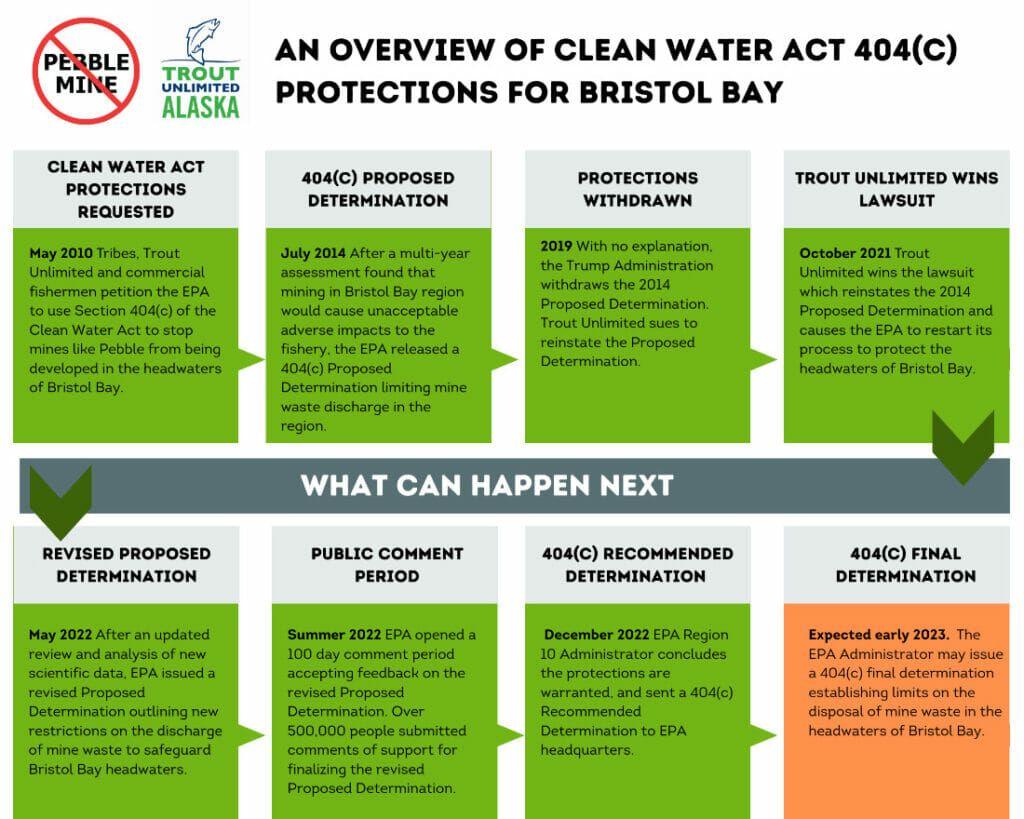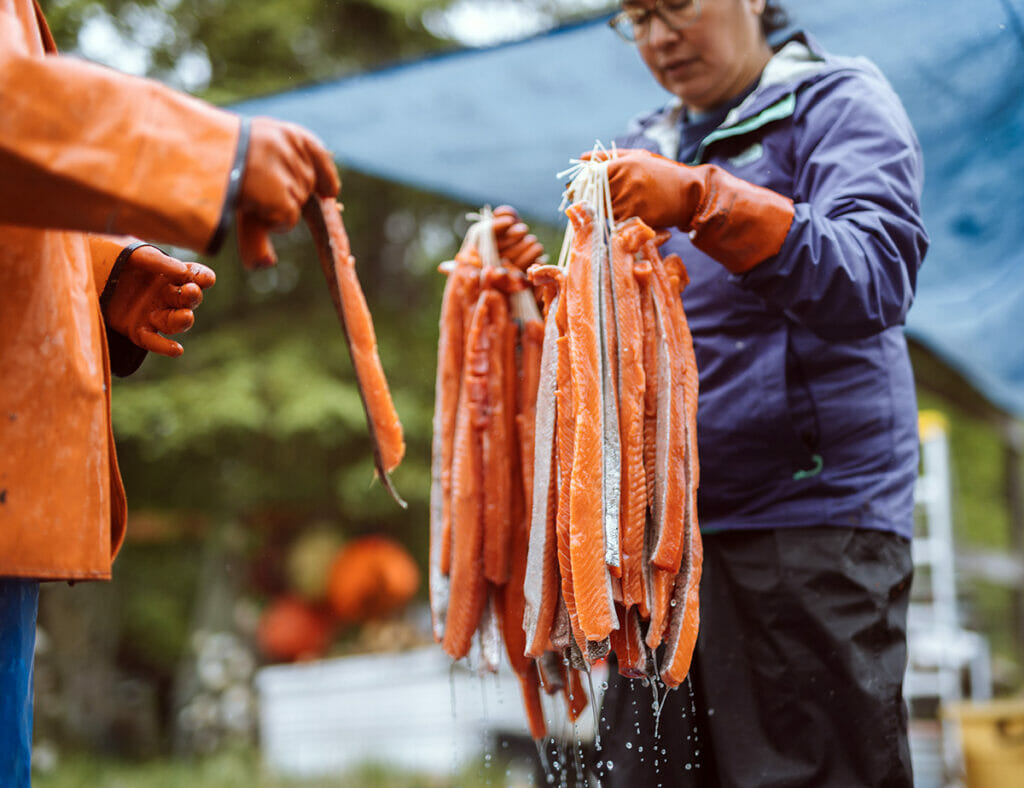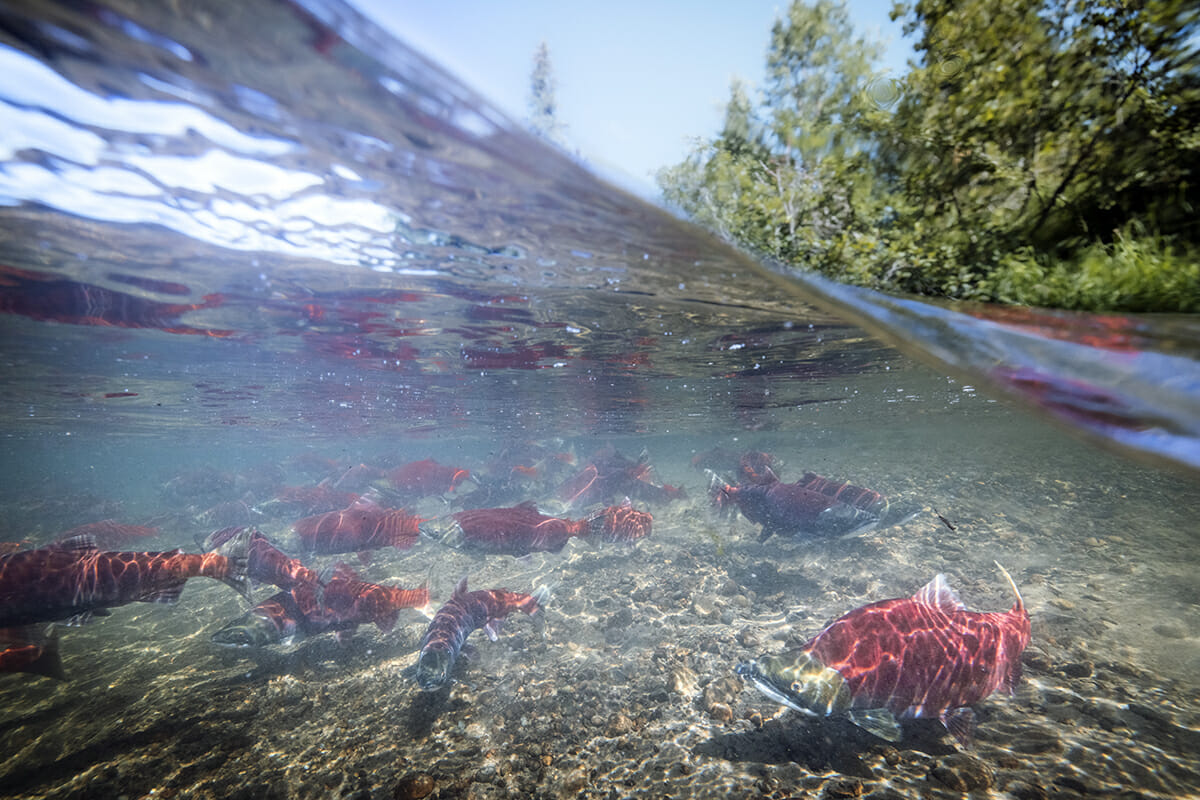We’re on the verge of gaining long-awaited Clean Water Act safeguards
The Environmental Protection Agency moved one step closer this week to determining that dumping mine waste in Bristol Bay’s headwaters would harm globally significant runs of sockeye salmon, setting the stage for the region to receive important Clean Water Act protections.
If the EPA finalizes the determination, a decision that could come early next year, it would cap a decade-long campaign by Alaska’s tribes, Trout Unlimited and a tireless coalition of conservation allies, businesses, and recreational and commercial fishing partners.
“Public support has been so, so important in making this happen,” said Nelli Williams, TU’s Alaska director. “Thank you to every person who commented during this round, and the several that preceded it. Every advocate who signed a petition, attended an event, or proudly displayed a “No Pebble” sticker on a car, a laptop, or a window should celebrate this win. Your actions continue to be critical in securing a brighter future for the world’s greatest sockeye salmon fishery.”
For years, TU and our partners have been working to stop the proposed Pebble mine in Bristol Bay’s headwaters, which would threaten a watershed that saw 78 million sockeye return in 2022.

Earlier this year, EPA Region 10 issued a revised “Proposed Determination,” using its authority under Section 404(c) of the Clean Water Act to find that mine waste would harm Bristol Bay. A public comment period coincided with the opening of the Bristol Bay commercial fishery, and as salmon surged into local streams, comments flooded in. Over half a million comments were submitted to the EPA in support of finalizing these protections. Record numbers were submitted from Bristol Bay residents and Alaskans, who have been clear throughout the seven comment periods over this question: Clean Water Act protections are needed and wanted.
This week, the EPA moved forward with a “Recommended Determination.” If finalized, the discharge of mine waste into rivers, streams and wetlands of the North and South Forks of the Koktuli River and Upper Talarik Creek will be restricted. These rivers would be heavily impacted if the proposed Pebble mine were built.
The EPA now has 60 days to issue a “Final Determination” or affirm, modify or rescind protections for the Bristol Bay watershed.
Last year, EPA Administrator Michael Regan said that “the Bristol Bay Watershed supports the largest sockeye salmon fishery in the world and highlights the essential benefits that clean water provides to the environment and to communities across the country.”

This is the latest step in a more than a decade-long process to advance 404(c) Clean Water Act safeguards for the Bristol Bay watershed. In 2010, local Tribes, commercial fishing groups and TU asked the EPA to use its authority under the Clean Water Act to protect the region’s waters. After launching multiple rounds of scientific assessment and review, and receiving more than 1.5 million comments in support of safeguarding Bristol Bay, the EPA moved forward in 2014 with a Proposed Determination.
Lawsuits brought by the Pebble Limited Partnership delayed the process until 2019, when the EPA under the Trump Administration suddenly and illegally withdrew the proposal.
Trout Unlimited sued the EPA and in October 2021, an appeals court sided with TU, concluding that the EPA violated the Administrative Procedures Act and Clean Water Act by ignoring science and the potential impacts of mining on the rivers, streams and wetlands of the Bristol Bay region.
The ruling put the PD back in place and required the EPA to restart the process.
Read more about Trout Unlimited lawsuit against EPA here.
Section 404(c) of the Clean Water Act gives the EPA the authority to restrict, prohibit or deny mine waste from being discharged into waters of a region if it determines it will have unacceptable adverse impacts on the fishery or water resources. The EPA has used this authority only 13 times over the course of the last half century—it’s reserved for only the most special and high-risk water resources.

Pebble Limited Partnership has strongly suggested that it will fight the EPA’s action, and the state of Alaska has intervened in lawsuits in the past to try to stop EPA from advancing protections for Bristol Bay. If finalized and legal action is brought forward, TU is committed to doing everything in our power to ensure these safeguards are upheld for Bristol Bay.
We look forward to seeing the final step in EPA’s process to safeguard the Bristol Bay region. TU has gone to court to defend the Clean Water Act and the proposed protections and will continue to defend any future litigation against protections for Bristol Bay.
Make a gift to support future legal efforts for Bristol Bay.



